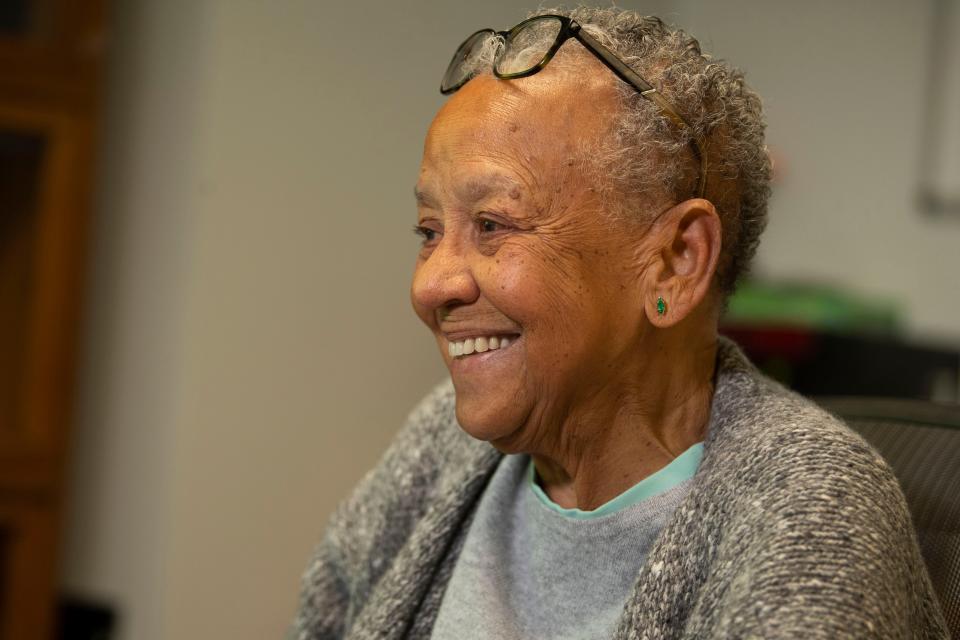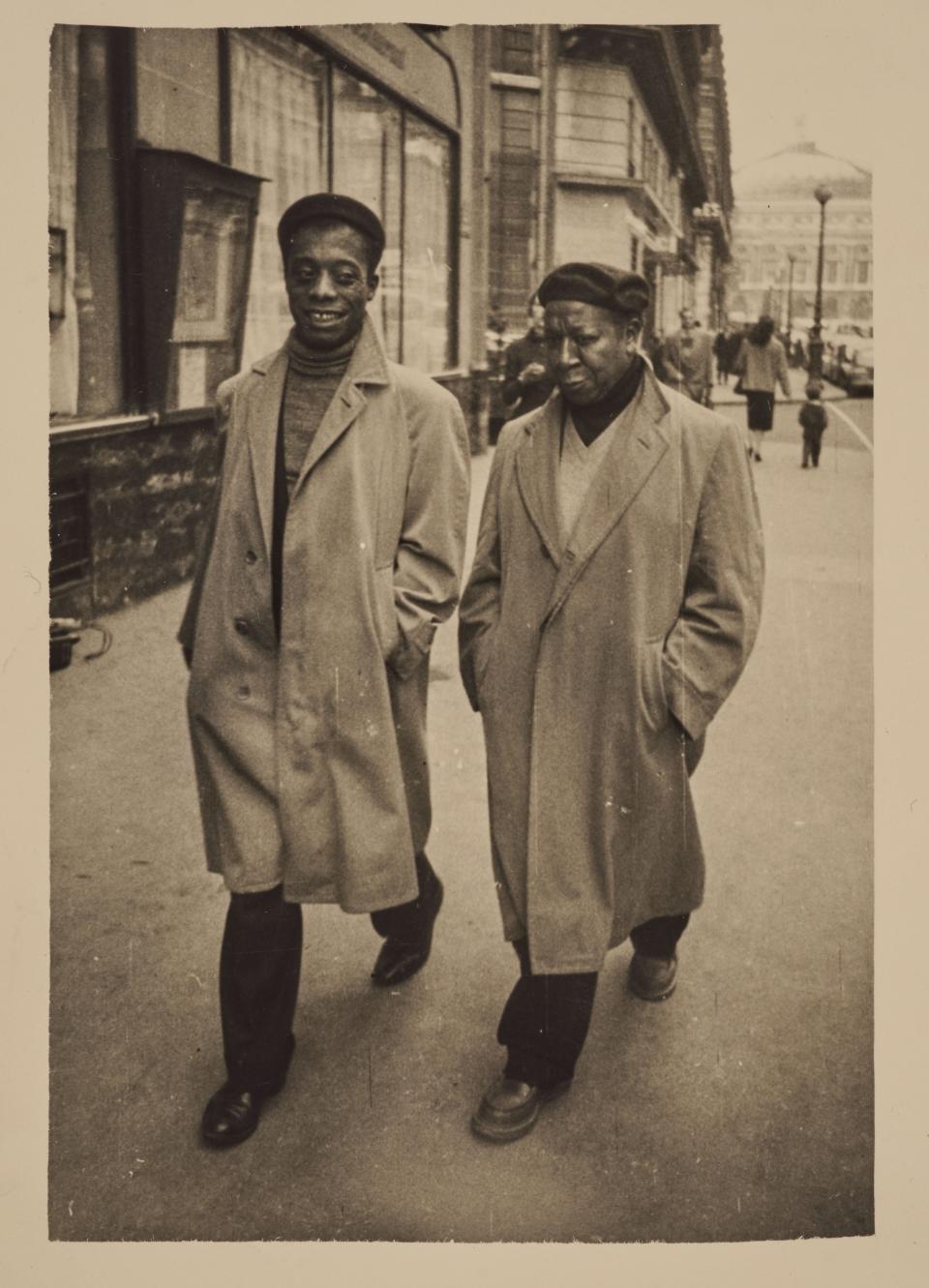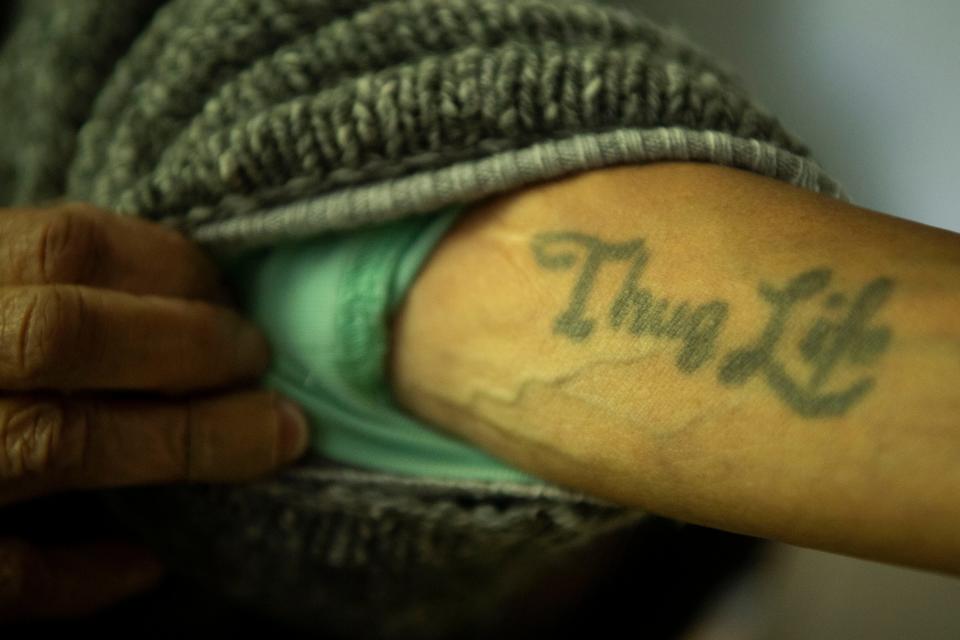Nikki Giovanni's moments for the culture: A talk with James Baldwin and her 'Thug Life' tattoo
At 80 years old, literary icon and legend in the Black Arts movement Nikki Giovanni isn’t sporting her afro anymore, but she certainly hasn’t lost her spunk.
These days she is enjoying life after retirement after a career as a distinguished professor at Virginia Tech University, where she taught young minds for 35 years. She’s traveling, cooking chitlins and fried chicken, dreaming of outer space, and still writing.
She’s also kept that edge that everyone loves. And her secret to living a long life? Champagne.

“I drink a glass of it every night before I go to bed. I highly recommend it,” she said.
But there are a couple of things the radically conscious Giovanni is known for in the world beyond her books: a statement tattoo, and a conversation with the late great James Baldwin.
During an exclusive interview with Knox News ahead of her 80th birthday. She talked about both moments that brought her to new cultural heights.
Nikki Giovanni and James Baldwin: When two Black literary legends get together
Before there were Black-centered television channels like BET and variety shows such as "Soul Train," there was a show called "Soul!" that paved the way for nationally televised U.S. programming devoted to Black culture. It came at the height of the civil rights era.
There was no doubt that the Black Power movement was a force to be reckoned with, so TV executives decided that it was only a matter of time before they gave it a showcase. Patti LaBelle and the Bluebells, Al Green, Toni Morrison, Arsenio Hall, Roberta Flack and Earth Wind & Fire are just a few of the artists who got their big breaks on “Soul!”
A 1971 talk between Baldwin, a 47-year-old luminary by that time, and Giovanni, a 28-year-old up-and-coming Blacks Arts Movement figure, was unforgettable.

They discussed Black love and family, and topics centered around African American culture. Giovanni recalls her relationship with Baldwin ‒ Jimmy, as she refers to him ‒ and how she got to meet the man she looked up to.
The show’s producer, the famous Ellis Haizlip, asked Giovanni to host but she declined, feeling she wasn't prepared for such a big moment.
Alvin Poussaint, a globally known Harvard University professor and psychiatrist who specialized in African American studies, attempted to persuade her.
"He was really trying to get me to do this and he asked me what would it take. Well, at the time I would have done anything to meet James Baldwin. And so he told me he knew Jimmy. A couple of days later he told me he talked to him and that he said he would love to meet me but that he couldn’t come to the United States. He asked if I would meet him in London and of course, I would have walked to London to meet Jimmy,” she laughed.
Giovanni and her son got on a flight and the rest was part of her personal history. But she looks back on the personal struggle Baldwin had that she isn’t sure to this day if he ever resolved in his heart.
“He was always trying to figure out how he fit into the Civil Rights movement. I think that always bothered him. He came back to the states and he marched with (the Rev. Martin Luther) King, and you remember that lovely photo we all remember with him and Nina ‒ they were close. But I think he never felt that what he did was sufficient and I think he would tell me that if he were sitting next to me today.”
Arguably the biggest Black literary icon of the time, with a legacy that has inspired generation after generation, Baldwin accomplished far more than he ever realized, she said.
“It was sufficient. And he would probably ask me, 'Well, what’s sufficient?' And I would say his writing was sufficient. At some point you have to say to yourself, I'm doing what I can do. And that is just enough.”
“I think Nina Simone felt the same way, and I was much closer to her. But they both never felt that they were doing enough. She was this incredible singer, you remember 'Mississippi Goddam,' it was amazing. But I think that there is this pressure people feel to always be doing more and I think that you have to be a little more gentle with yourself.”
The famous tattoo
Far later in Giovanni's life when Tupac Shakur, son of Black Panther Afeni Shakur, was slain in 1998, Giovanni did something a rebel would do. She got a tattoo on the inside of her left forearm. It's a small gesture from one of the coolest civil rights legends to ever live to one of the best rappers of all time.
She still calls him Pac.
“I remember when my mother and I were sitting at the table together, we were doing table sitters one afternoon after daddy died and we were talking about it. I said, 'You know Pac got shot.' I didn’t know him or his mother Afeni. But I knew it was a sad thing to lose your child. And I guess I could have written a note, but I was wondering what else I could do to let her know how I felt.”

Instead of the letter to Afeni, she went all out, in permanent fashion. She got the words “Thug life” in honor of the phrase Pac tattooed across his belly.
“I think I'm gonna get a tattoo,” she remembers telling her mother.
“I said, I'm thinking about running it (because I was) down the side of my face so everybody can see it. And my mother, this little old middle-class lady, you could see her wheels spinning inside her head. She said, 'Well, baby, if you do that, you won't be able to see it,' and she was right," Giovanni laughed.
It was a news photo of her famous tattoo that caught the attention of Afeni.
"They asked me and I told the New York Times absolutely you can photograph it. And that's how Afeni saw it. And she actually wrote me a letter. I just wanted her to know she wasn't alone."
This article originally appeared on Knoxville News Sentinel: Nikki Giovanni's top cultural moments: James Baldwin, 'Thug Life' tattoo

 money
money 